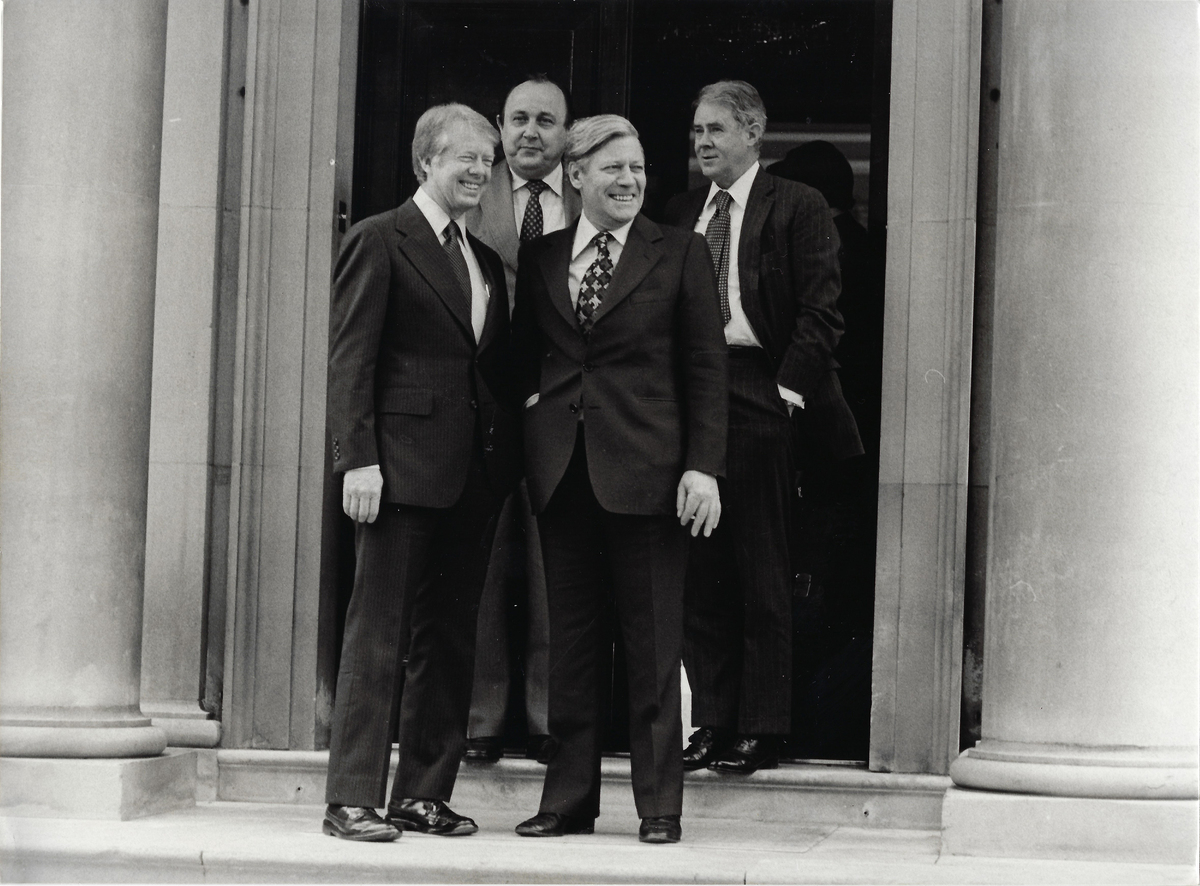Abstract
On May 7–8, 1977, a G7 (Group of Seven) summit meeting took place in
London. The “Downing Street Summit,” as it was called, gave newly
elected U.S. President Jimmy Carter his first opportunity to appear on
the international stage. In their joint declaration, state and
government leaders described curbing inflation and creating jobs as
their most urgent tasks. In order to reduce their dependence upon
petroleum imports, energy was to be saved. Additionally, more
energy—especially nuclear energy—was to be produced. The main point of
contention between Carter and Schmidt was nuclear proliferation; against
the objections of the Carter administration, the Schmidt government
approved the export of nuclear technology valued at more than 10 billion
U.S. dollars from the Federal Republic to Brazil. The photograph shows
Jimmy Carter (front left), Helmut Schmidt (front right), Foreign
Minister Hans-Dietrich Genscher (back left), and U.S. Secretary of State
Cyrus Vance (back right) at the residence of the American ambassador in
London.
